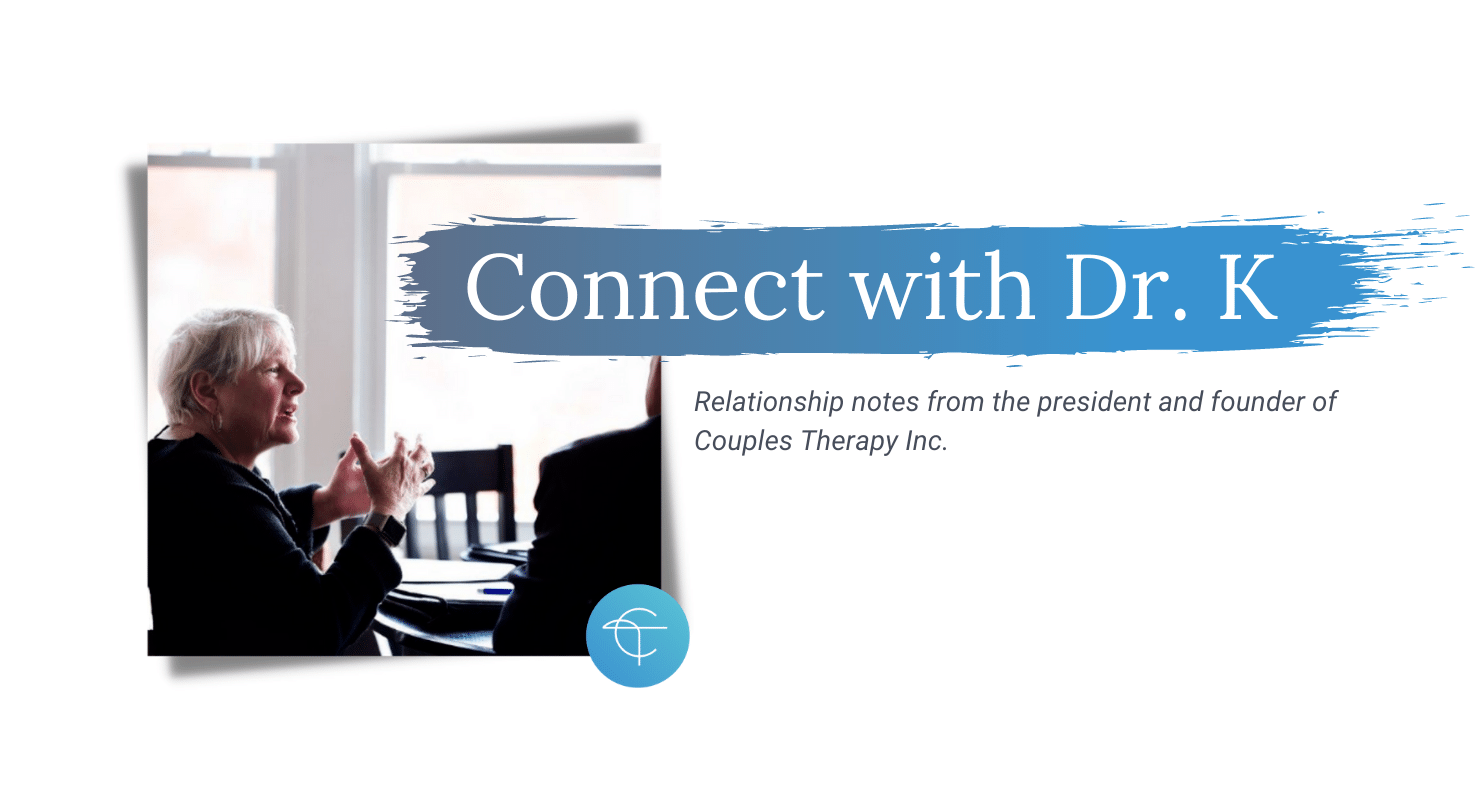What are some ways that couples can show appreciation for each other?
Gottman says “small ways, often.” Here are 5 ways you can adopt now to show each other appreciation:
1. Set up rituals of connection, and in them, share one thing your partner has done that you really appreciate them for.
Such as:
“I was watching you with Teddy in the dining room helping him with his math homework. You had great patience. I really appreciate you for that wonderful quality.”
Notice I said “I appreciate you” not “I appreciate that…” People like to be appreciated for who they are, not what they do.
2. Notice what your partner is doing right, and thank them for it.
It’s a habit of mind to either notice what someone is doing right or wrong. One will leave you critical and discontent; the other grateful and appreciative. You do have control over this because your mind tends to think in dichotomies and will generate one view or the other.
If you want to stay happily married, “reframe” your critical view into a grateful one. E.g: “He’s loading that dishwasher wrong again. I don’t know how many times I have to tell him…” to “He’s loading the dishwasher wrong again. I can be grateful that he’s loading it and taking care of cleaning up after dinner. What’s the worst that can happen?”
Then say: “Thanks, honey for cleaning up the kitchen!”
3. Spend every day writing into a joint notebook positive thoughts and feelings for each other. Don’t keep score here! If one of you writes more than the other, so be it. The goal is to keep your own mind full of gratitude, and as your partner reads these thoughts, to feel appreciation from you.
4. Spend alone time together in an intentional way. Before or after work, find a few quiet moments to connect, shut off your phones, and simply tune into each other. Keep eye contact. Hold hands, even. Share what you’ll be doing today that has meaning to you. Share what you did that you were particularly proud of. Listen to what your partner says and don’t give advice, just be supportive and connect around the emotion. “That sounds great! You must be so proud!”
5. Develop a relaxing evening ritual. Many couples don’t go to sleep at the same time. No matter. Find a common time and get ready for bed (even if you won’t be turning in) by getting into nightclothes or loungewear, brushing your teeth, and chilling together. Talk about pleasant things. Listen to calming music. Put your unconscious mind into a state that says: “I’m loved and safe. I can fall asleep with confidence.”
Were you tucked in at night as a kid? Do or did you tuck in your own kids? Consider this the adult equivalent, except it is possible that both of you are the kids tucking in each other. There is a benefit to both parties. Remember that when the “parent” prepares the “child” in this role, the parent slows themselves down as well.
When you consider all of the ways you are grateful to spend this fleeting time on Earth with this person, your wellbeing will improve, studies have shown. And when you do thoughtful things and look for ways that your partner is doing thoughtful things for you, your relationship will improve, studies show.
If even reading these suggestions leaves you resentful and angry, or hurt and wistful, take notice. People need to take heed of living in a state of chronic resentment and pain. It is a toxic state. You can learn how to effectively give voice to those hurts, anger, and resentments in ways that aren’t toxic to the relationship. And you can learn it over a weekend.
If you read this and feel it is doable, do it! Start today!


